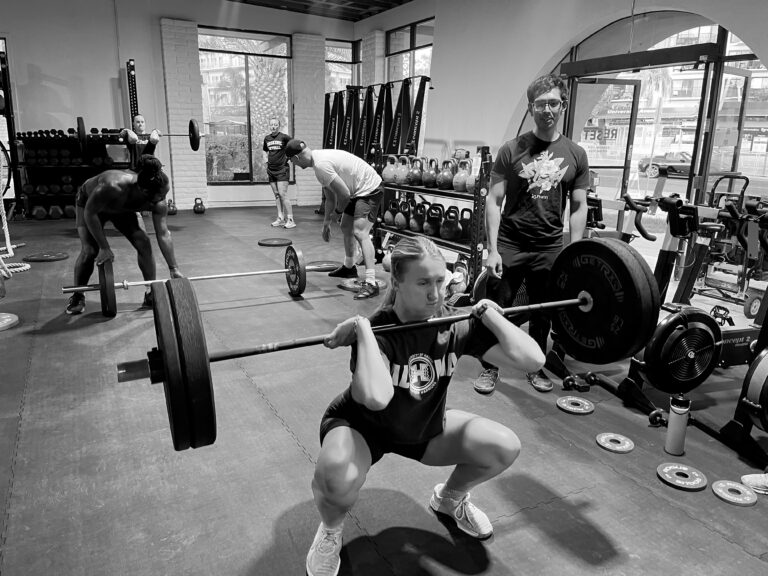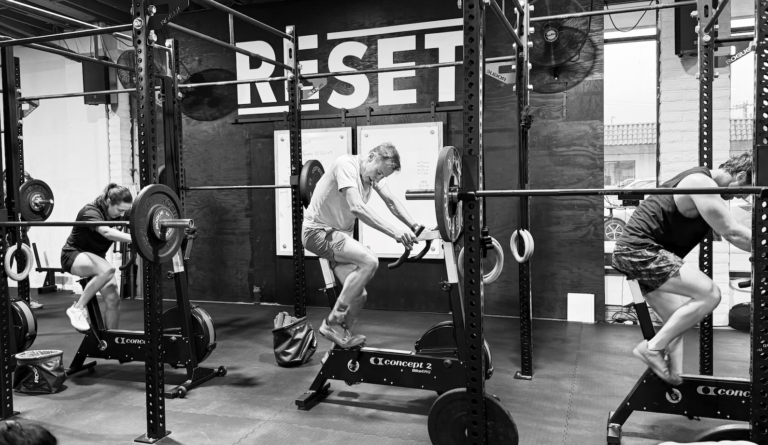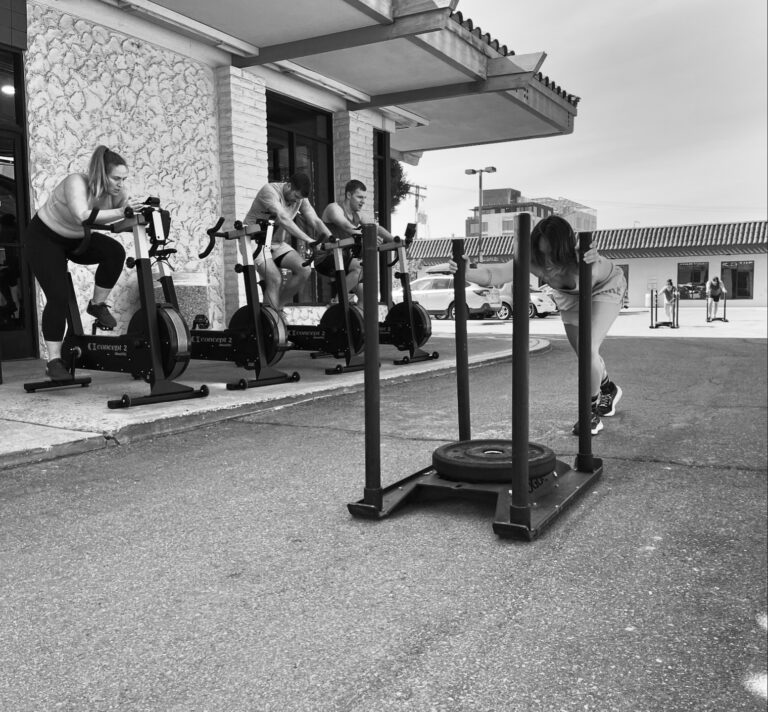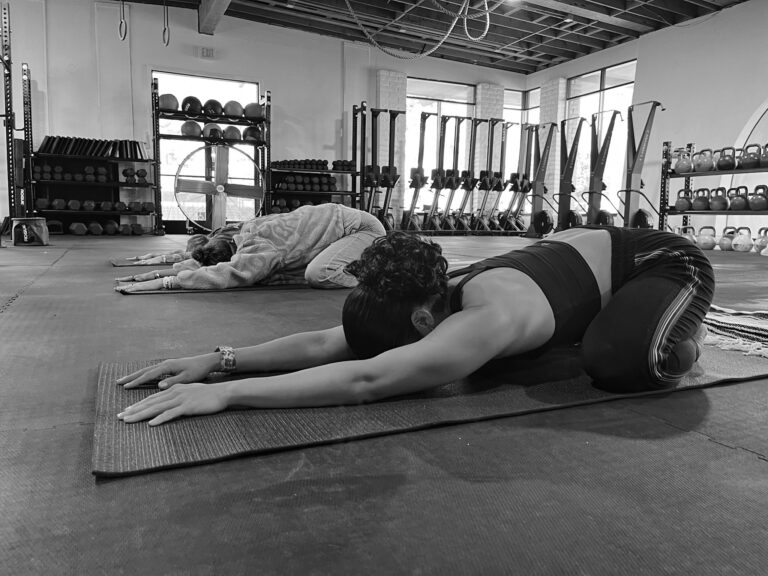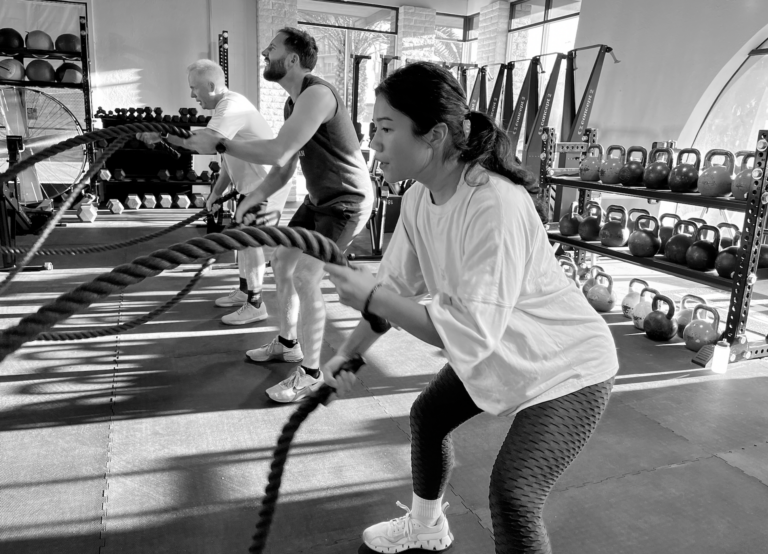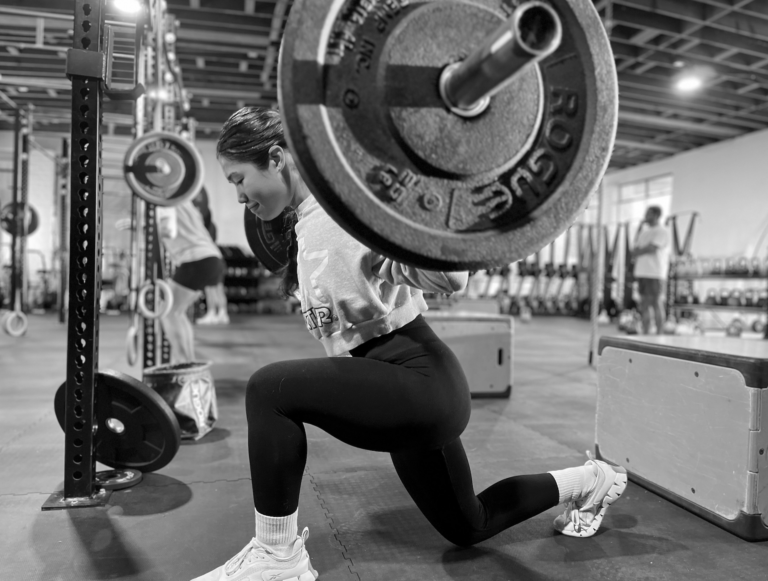Always Evolving: The Power of Continual Learning at RESET
Take a moment to recall the last time you learned a new movement in the gym—a technical lift you’d never tried before, a fresh approach to breathing, or even a mental shift in how you perceive progress. How did it feel? Chances are, the excitement of discovery propelled you forward, fueling not only your workout but also your sense of possibility. At RESET, we believe that the spark of continual learning goes beyond sets and reps. As one of our 12 Pillars we consider it foundational. It’s a mindset that nourishes every aspect of our well-being—from fitness and wellness to mental acuity and longevity.
We joke about “building both muscle and character” here at RESET, but there’s a good deal of truth in that statement. Continual learning refines our bodies, minds, and spirits. This principle begins with our coaches, who stay on the cutting edge of exercise science. It extends to our members, who discover more about themselves every time they push past a plateau or master a new skill. By the end of this post, we hope you’ll see how this ethos can transform your entire approach to life.
Why Continual Learning Matters
“If you’re not growing, you’re dying.” The phrase might sound dramatic, but it resonates with a point made by psychologist Carol Dweck. She argues that believing in the capacity to develop, rather than viewing talents and abilities as fixed, dramatically affects how we approach challenges. Research from her work on the growth mindset shows that individuals who embrace learning experiences, handle setbacks more effectively, and ultimately achieve greater success.
In a gym setting, that success translates into improved fitness, broader wellness, and the mental toughness to weather obstacles. Whether you’re striving for weight loss, hoping to improve your diet, or simply aiming to feel stronger in your everyday life, adopting a mindset of constant discovery becomes a game-changer. Each new skill—be it a complex squat variation or a better understanding of how your breathing affects performance—can deepen your connection to your own body.
Behavioral scientist James Clear notes that small, steady increments in skill lead to massive gains over time. In the gym, a minor tweak—like adjusting your stance in a squat—can yield surprising results when compounded over months. This process isn’t just about exercise; it’s about tapping into your intrinsic capacity to grow and adapt.
Coaches Who Keep Learning
At RESET, our coaches embody the spirit of continual learning. They hold certifications, read the latest studies, attend workshops, and refine their coaching style through constant feedback. Just like our members, they never see themselves as finished products. Instead, they aim to bring cutting-edge insights to each session.
- Staying Current with Research: Exercise science evolves rapidly. What was “gold standard” ten years ago might be outdated now. Coaches at RESET keep a pulse on emerging data—research on biomechanics, nutritional science, mental resilience, and more. A 2019 study in the Journal of Strength and Conditioning Research examined how slight shifts in bar placement could dramatically impact muscle activation in squats. Armed with this knowledge, our coaching team can refine your technique for better results and fewer injuries.
- Peer Learning: Knowledge isn’t transferred only from coach to member; it also moves between coaches themselves. Someone specialized in mobility might share insights with a colleague versed in metabolic conditioning, ensuring members get a wide spectrum of expertise whenever they step into the gym.
- Certifications and Continuing Education: From advanced personal training credentials to specialized courses in kettlebell training, injury prevention, or mobility, our coaches treat education as an ongoing pursuit. This dedication means every session at RESET is shaped by the latest, most effective approaches to training.
Members: Lifelong Students of Their Own Bodies
While coaches set the stage, members bring the script to life. We see it daily: someone stumbles upon a new breathing technique that unlocks a better deadlift PR, or finally has that “lightbulb moment” for bracing their core. One discovery often triggers improvements across multiple lifts or movements.
1. The Mind-Body Connection
Understanding our bodies is crucial for pushing boundaries physically and mentally. Each time you delve deeper into form or biomechanics, you enhance this connection. Over months or years, that deeper awareness fosters heightened mental focus and reduced stress. The gym transforms from a mere workout spot to a laboratory for self-discovery.
2. Overcoming Plateaus
Plateaus happen in every training journey, and grit alone doesn’t solve them. As Angela Duckworth points out, perseverance must be coupled with smart strategies. When you adopt an open-minded approach, you break from the cycle of doing the same routine and expecting different results. You might experiment with accessory movements, rest intervals, or technique tweaks recommended by peers or coaches. Each experiment can be the key to reviving progress.
3. Learning Fuels Motivation
Boredom is often the silent killer of fitness aspirations. Cal Newport, known for his work on deep focus, suggests that sustained engagement in a craft (or skill) prevents burnout and nurtures ongoing commitment. In a gym context, the idea of always finding a new layer to peel back—a nuanced angle for your squat setup or a fresh method to build grip strength—keeps you engaged. When monotony is broken by curiosity, you remain mentally present and excited about your fitness journey.
Lifelong Learning Beyond the Gym
The perks of continuous learning in fitness don’t end once you leave the squat rack. The same principles that drive physical growth also bolster mental acuity and promote overall wellness. Taking on new challenges, whether it’s a novel exercise program or a mental approach to training, keeps your brain active and adaptable.
1. Mental Resilience and Stress Management
New stimuli demand quick learning and adaptation, building resilience. If you’re comfortable trying new lifts or adjusting to unexpected hurdles in your routine, you’re more adept at handling life’s curveballs outside the gym. The discipline and creativity you cultivate under a barbell or with a kettlebell can reduce anxiety in day-to-day tasks.
2. Social and Emotional Growth
Elizabeth Strout, the Pulitzer Prize-winning author known for exploring the depths of human relationships, once noted that shared experiences foster empathy and perspective. In a fitness context, trying out a challenging movement with a partner or celebrating a friend’s personal record fosters social bonds. This collective growth not only elevates your emotional intelligence but also strengthens the community fabric. People who learn together often form deeper, more supportive relationships.
3. Longevity and Quality of Life
Research in the American Journal of Geriatric Psychiatry links consistent mental and physical engagement to reduced risk of cognitive decline. By turning gym sessions into ongoing lessons in movement, strategy, and body awareness, you merge physical vitality with mental sharpness. Over time, this synergy can lead to a more vibrant, fulfilling life—even as you enter later decades. Learning new movement patterns or refining old ones literally keeps your brain on its toes.
Expanding the Margins of Experience
Many folks first join a gym to chase goals like weight loss or a better diet. While those aims are valid, limiting your focus to just one or two metrics can stunt broader growth. By “expanding the margins of experience,” you remain open to untried exercises, advanced variations, and even holistic wellness ideas like meditation or breathwork. Each discovery can shift your entire paradigm.
Writer and researcher Michael Easter, famous for exploring the psychological benefits of discomfort, suggests that unfamiliar challenges sharpen our inner senses and build deeper self-confidence. In the gym, that might mean tackling a new piece of Rogue Fitness equipment, experimenting with bodyweight drills, or trying an unconventional group class. Regardless of the method, stepping beyond familiar territory broadens your reservoir of skills and experiences.
Brené Brown once observed that vulnerability is the birthplace of courage. If you’re afraid of looking awkward while learning something new, that fear can hold you back from breakthroughs. Embracing the uncertainty—the risk of missteps, minor embarrassments, or initial failures—often paves the way for profound growth.
Connecting to RESET’s Pillars
At RESET, we emphasize multiple pillars, all of which intersect with continual learning:
- Mindset: Adopting a growth-oriented attitude transforms perceived “failures” into building blocks.
- Recovery: Exploring new recovery tools—from mobility drills to advanced sleep techniques—can keep your body ready for fresh challenges.
- Community: Shared learning experiences forge stronger bonds. When a group masters a new workout regimen together or collectively problem-solves an exercise nuance, community flourishes.
- Longevity: A dynamic mind and body thrive longer. Remaining curious about different training strategies, dietary tweaks, or self-care routines keeps you in a forward trajectory.
Practical Steps for Embracing Continual Learning
1. Stay Curious and Ask Questions
Curiosity might feel like a trait reserved for children, but it’s critical for adults seeking mastery. Don’t just follow a program blindly—ask your coach why certain exercises are paired or how a specific movement addresses your personal goals. This curiosity transforms each workout into a participatory lesson.
2. Experiment with Different Modalities
Used to a certain style of training? Venture out. Maybe you primarily lift barbells; try a functional movement class. Or if you only do high-intensity circuits, explore a session emphasizing technique and slower tempos. Each pivot can unlock new insights that keep you motivated.
3. Track Your Progress
Log your lifts, keep notes on how an exercise feels, and reflect on any mental or emotional patterns. This data becomes a roadmap, showing where you might need more coaching or which strategies boosted your performance the most.
4. Engage with the Community
Talk to fellow members, discuss how they overcame specific hurdles, or share a “eureka” moment you recently had. When a group invests in collective learning, everyone benefits. Knowledge circulates, camaraderie deepens, and the entire gym environment becomes more stimulating.
5. Accept Discomfort
Discomfort signals that you’re treading new ground. Recognize it as a hallmark of change rather than a threat. Whether it’s mental discomfort (an unfamiliar concept) or a physical challenge (a brand-new lift), leaning into these edges can spark leaps in proficiency.
A World of Opportunity
Embracing continual learning isn’t a gimmick or a side hobby; it’s integral to human development. In a fitness environment, it separates those who simply go through the motions from those who genuinely transform. By seeing the gym as a nexus for constant discovery—a place to test, learn, adapt—you enrich not only your workout but your entire life.
This ethos resonates in our location near Hillcrest, where we fuse innovative training with a communal spirit that values growth. It’s also why many consider RESET one of the best gym in San Diego: we invest in learning so we can continuously offer members an evolved and evolving approach to fitness.
Ultimately, we train not just to lift heavier or run faster, but to enhance how we experience day-to-day life. A strong mind-body connection, underpinned by continual learning, yields resilience and mental clarity that can serve you well, whether you’re exploring CrossFit or striving to refine your diet. The journey doesn’t conclude with a certain number on the scale or an arbitrary PR; it’s a lifelong process fueled by curiosity, adaptability, and the synergy between knowledge and action.
Educational theorist John Dewey summed it up best when he said, “Education is not preparation for life; education is life itself.” If that holds true, then every new technique, every deeper insight into your body, and every mental breakthrough at RESET is part of your ongoing curriculum. Are you ready to enroll? The opportunities for growth—physical, mental, and emotional—are limitless.
References
- Dweck, C. (2006). Mindset: The New Psychology of Success.
- Clear, J. (2018). Atomic Habits.
- Duckworth, A. (2016). Grit: The Power of Passion and Perseverance.
- Journal of Strength and Conditioning Research (2019) on squat biomechanics.
- Brown, B. (2015). Rising Strong.
- Newport, C. (2016). Deep Work.
- Easter, M. (2021). The Comfort Crisis.
- Strout, E. (2022). Various interviews on human connection and personal growth.
American Journal of Geriatric Psychiatry on cognitive engagement and aging.

